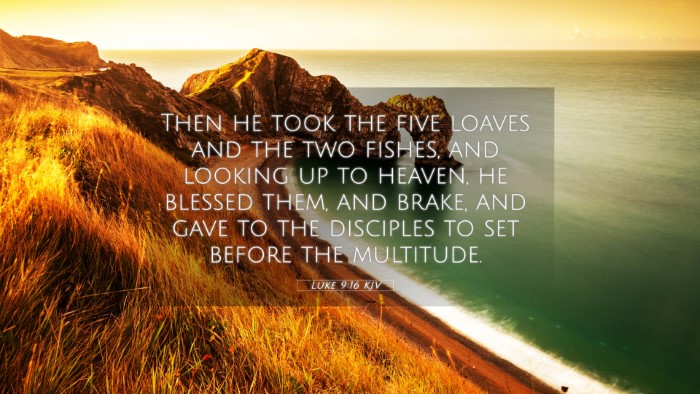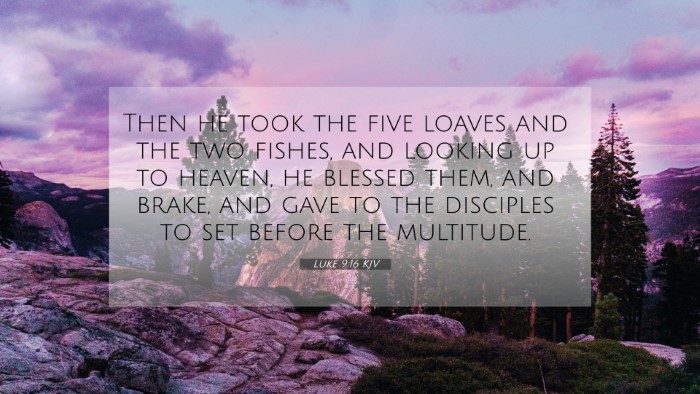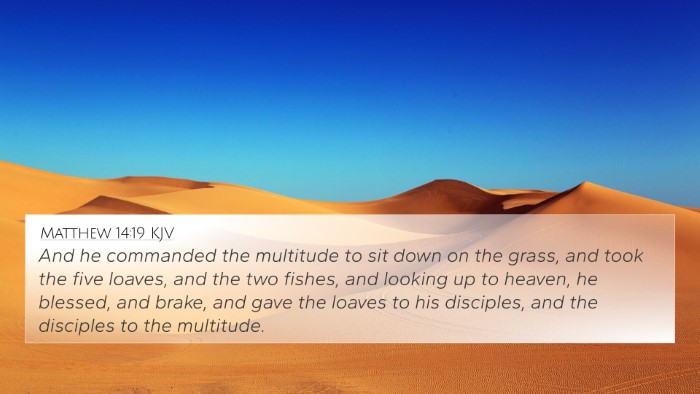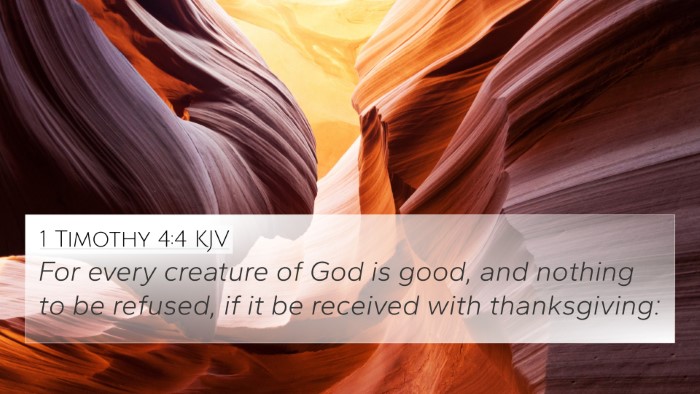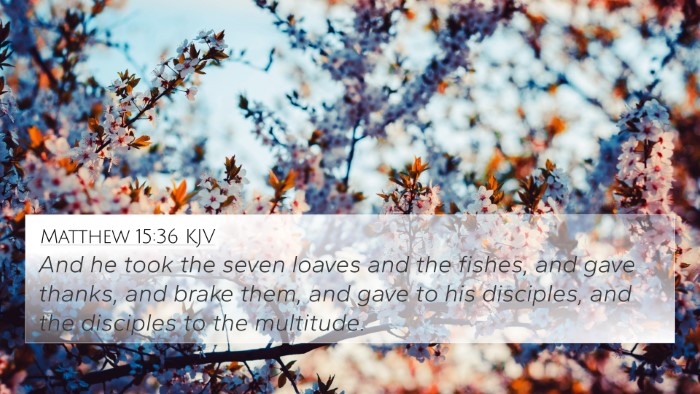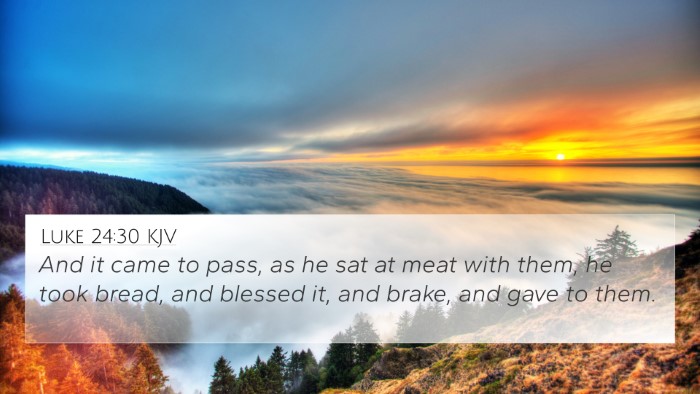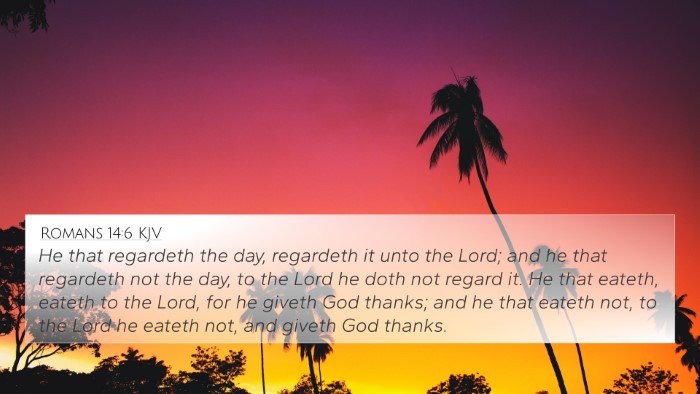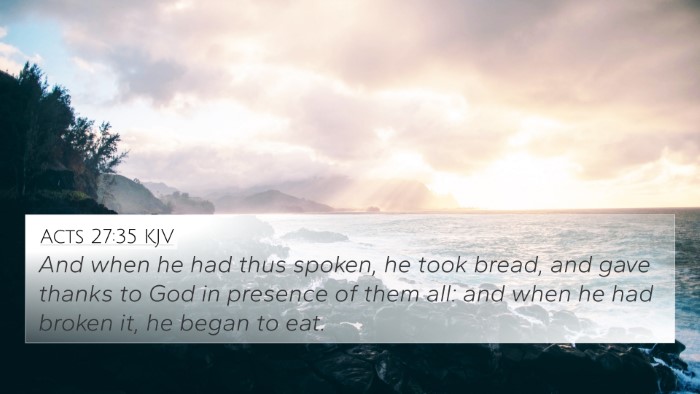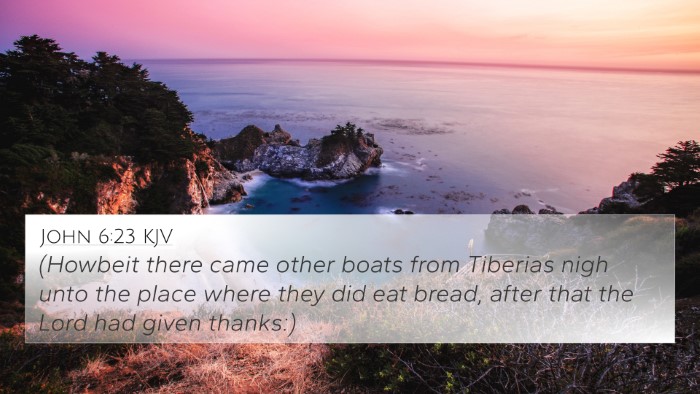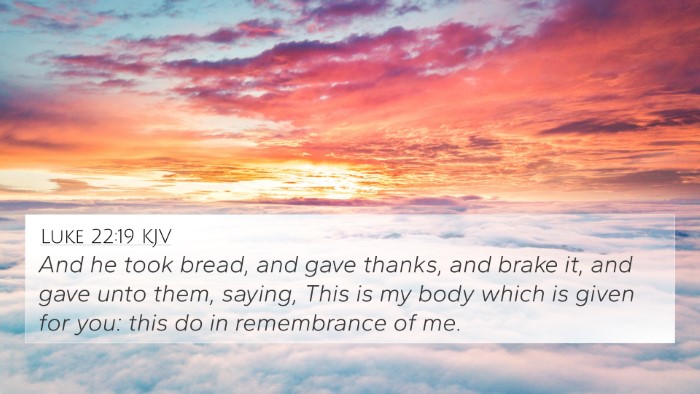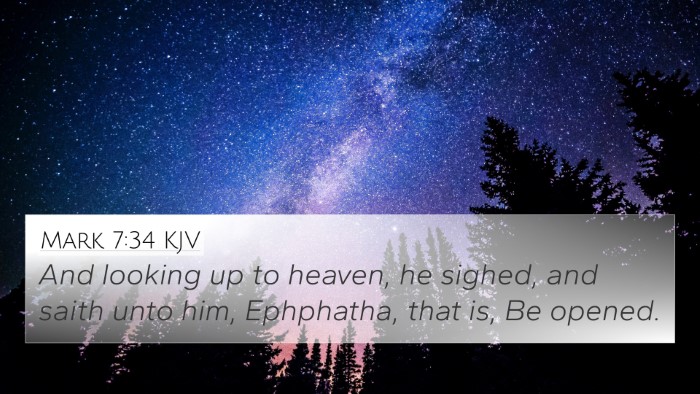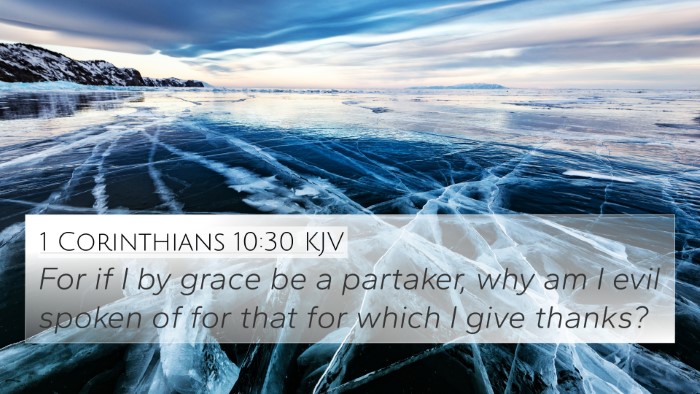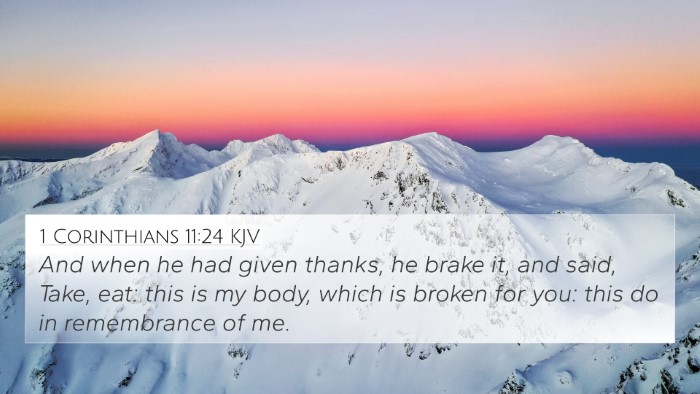Bible Verse Interpretation: Luke 9:16
Verse: Luke 9:16 - "And he took the five loaves and the two fishes, and looking up to heaven, he blessed them, and brake, and gave to the disciples to set before the multitude."
Overview
This verse is a pivotal moment in the Gospel of Luke, representing Jesus' miraculous feeding of the 5,000. This miracle not only demonstrates His divine power but also emphasizes the themes of provision, gratitude, and communal sharing among His followers.
Commentary Insights
-
Matthew Henry's Commentary: Henry emphasizes the significance of Jesus' actions, particularly His act of looking up to heaven. This act signifies a direct acknowledgment of God's sovereignty and provision. Henry notes that Jesus takes the ordinary supplies of five loaves and two fish, symbolizing that God can take the simplest offerings and multiply them for His purposes. Moreover, he reflects on the importance of blessing the food before distributing it, highlighting the model of gratitude in all our actions.
-
Albert Barnes' Commentary: Barnes focuses on the connection between faith and the miraculous. He highlights that Jesus blessed the food, underscoring the principle that gratitude and prayer can turn the ordinary into something extraordinary. He also points out that this event foreshadows the Last Supper, where Jesus breaks bread, reinforcing the themes of fellowship and sacrificial love.
-
Adam Clarke's Commentary: Clarke provides an analysis of the logistical improbability of feeding such a large crowd with minimal provisions. He emphasizes the sheer magnitude of the miracle and how it serves to illustrate Jesus' authority as the Messiah. Clarke also mentions that this miracle serves to instruct the disciples on their role as providers of spiritual food, paralleling their future mission to spread the Gospel.
Thematic Connections
Luke 9:16 can be cross-referenced with several other Bible verses that reinforce its themes of provision and divine intervention:
- John 6:11 - "Jesus then took the loaves, and when he had given thanks, he distributed to those who were seated as much as they wanted." This verse parallels Luke’s account, providing a deeper understanding of Jesus' actions during the miracle.
- Matthew 14:19 - "And he ordered the crowds to sit down on the grass, and taking the five loaves and the two fish, he looked up to heaven and said a blessing." Matthew's account emphasizes a similar act of organization and focus on the blessing of the food.
- Mark 6:41 - "Taking the five loaves and the two fish, he looked up to heaven and said a blessing and broke the loaves." Mark also recounts the miracle, reinforcing the importance of Jesus' actions.
- 1 Thessalonians 5:18 - "In everything give thanks; for this is the will of God in Christ Jesus concerning you." This verse highlights the principle of gratitude that Jesus demonstrates in Luke 9:16.
- Psalms 136:25 - "Who gives food to all flesh, for his steadfast love endures forever." This psalm echoes the theme of God's provision, connecting to the miracle of the loaves and fishes.
- Exodus 16:15 - "When the Israelites saw it, they said to each other, ‘What is it?’ For they did not know what it was. Moses said to them, ‘It is the bread the LORD has given you to eat.’" This Old Testament account of God providing manna parallels Jesus' miraculous feeding of the multitude.
- Philippians 4:19 - "And my God will supply every need of yours according to his riches in glory in Christ Jesus." This verse underlines God's continual provision, relating to the abundance experienced during the miracle.
Understanding Biblical Connections
Cross-Referencing Biblical Texts: The act of cross-referencing verses provides a more comprehensive understanding of specific themes such as divine provision, the importance of prayer, and the role of community in sharing God's blessings. By examining Luke 9:16 in conjunction with these other verses, one can see a rich tapestry of God's faithfulness and the call to recognize and share His blessings in our lives.
Tools for Bible Cross-Referencing
To dive deeper into the study of Luke 9:16 and its connections, individuals might consider utilizing:
- Bible concordance for identifying related verses.
- Bible cross-reference guides for systematic study.
- Online resources that provide comprehensive themes and inter-Biblical dialogues.
- Commentaries for deeper contextual understanding.
- Bible chain references to trace themes throughout scripture.
Conclusion
In conclusion, Luke 9:16 encapsulates key themes regarding the provision and miracles of Jesus, serving as a reminder of His divine power and His model for gratitude. Cross-referencing this verse with others enriches our understanding and allows for a deeper exploration of the connections that weave through the entire Biblical narrative.

